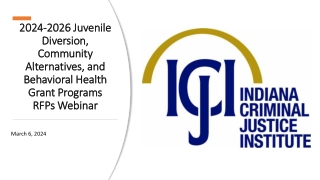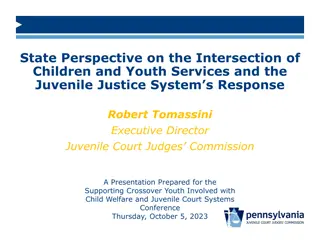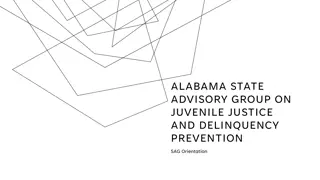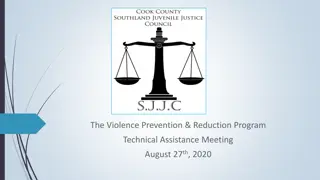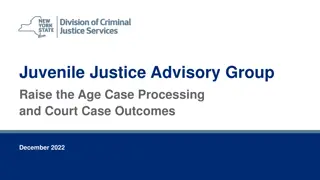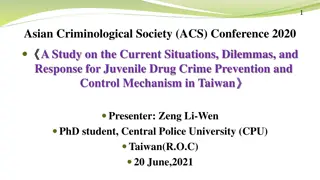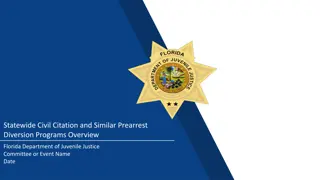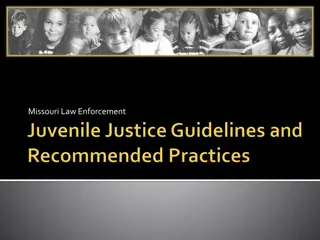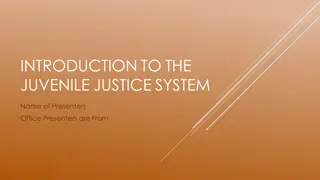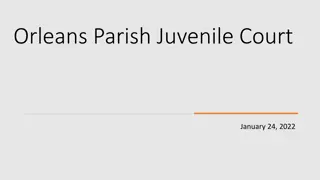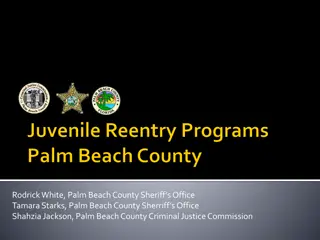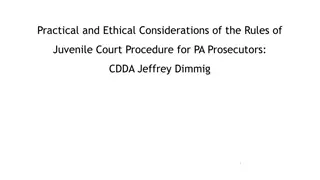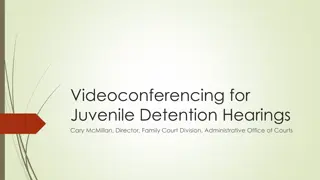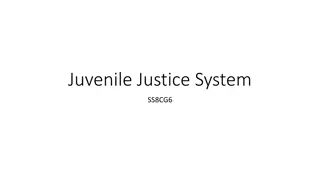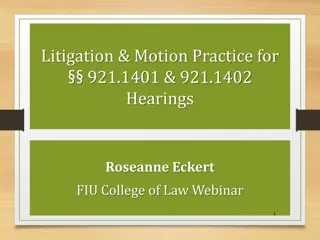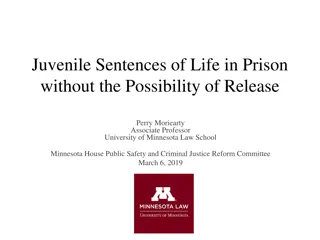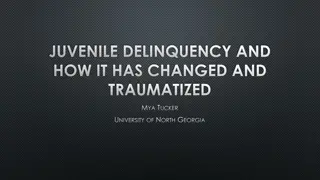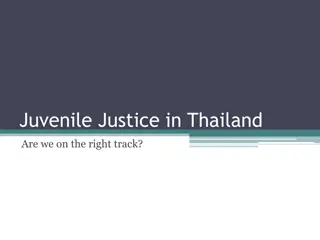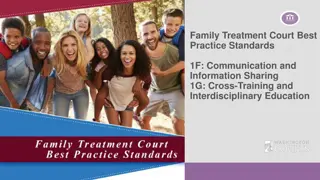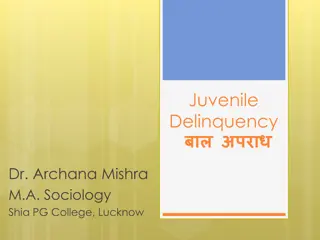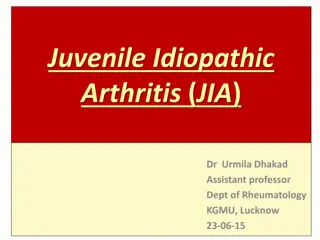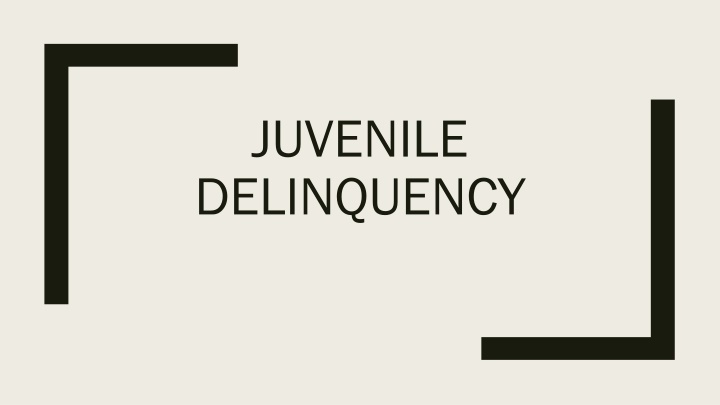
Understanding Juvenile Delinquency: Causes and Theories
Discover the concept of juvenile delinquency, a gateway to adult crime, where children engage in antisocial or criminal activities. Learn about the definition, laws, and theories surrounding juvenile delinquency, including Social Cognitive Theory and Moral Reasoning.
Download Presentation

Please find below an Image/Link to download the presentation.
The content on the website is provided AS IS for your information and personal use only. It may not be sold, licensed, or shared on other websites without obtaining consent from the author. If you encounter any issues during the download, it is possible that the publisher has removed the file from their server.
You are allowed to download the files provided on this website for personal or commercial use, subject to the condition that they are used lawfully. All files are the property of their respective owners.
The content on the website is provided AS IS for your information and personal use only. It may not be sold, licensed, or shared on other websites without obtaining consent from the author.
E N D
Presentation Transcript
JUVENILE DELINQUENCY
It refers to the antisocial or criminal activity of the child (<16 or <18) which violates the law. Juvenile Delinquency is gateway to adult crime. Therefore juveniles need to be guided towards the correct path. uvenile Delinquency Delinquency is a action, omission, or moral behavior of juvenile which is not permitted in the society , and when a child perform such behavior then he is considered to be delinquent. The word delinquency is derived from greek work delinquer means to omit. It means children who are neglected by the society or by their parents for which they involve in harmful and illegal activities. When a child does any crime then it falls under the category of juvenile delinquency. Juvenile Juvenile delinquency refers to anti delinquency refers to anti - - social acts of children or of young people under social acts of children or of young people under age age. Acts of delinquency by a juvenile may be running away from home ,using vulgar languages, committing several offences, doing illegal work, stealing habituated to drugs and etc other unsocial behavior.
Definition Term Juvenile has been defined in clause h of section 2 of the TJJA- 1986. Juvenile means a boy who has not attained the age of sixteen years or a girl who has not attained the age of eighteen years. In India, Juvenile delinquency is the violation of ordinary penal law of India. Juvenile Justice ( care and protection of children ) Act, 2000, governs the juveniles who are in need of care and protection.
THEORIES OF JUVENILE DELINQUENCY
Social Cognitive Theory Learning theory developed into SCT in 1986 and posits that learning occurs in a social context with a dynamic and reciprocal interaction of the person, environment, and behavior. It emphasizes on social influence and its emphasis on external and internal social reinforcement. The theory takes into account a person's past experiences, which factor into whether behavioral action will occur. These past experiences influences reinforcements, expectations, and expectancies, all of which shape whether a person will engage in a specific behavior and the reasons why a person engages in that behavior. Self-efficacy was added when the theory evolved into SCT. Self-efficacy - refers to the level of a person's confidence in his or her ability to successfully perform a behavior. Self-efficacy is influenced by a person's specific capabilities and other individual factors, as well as by environmental factors (barriers and facilitators).
Theory Moral Reasoning Moral reasoning is cognitive process that allows an individual to make decisions that are mostly acceptable. Thus behavior of a person will be moral if it arises from moral reasoning. An individual becomes criminal when they have not successfully completed their intellectual development from childhood to adulthood.
Six Stages of MR Stage I : Punishment & Obedience Orientation Stage II : Instrumental Relativist Orientation Pre conventional Stage III : Good boy, Nice girl Stage IV : Law & Order orientation Conventional Stage V : Social contract Orientation Stage VI Universal Ethical Principles Post Conventional
Other theories: Merton s Anomie (normlessness) Theory Albert Cohens measuring Rod theory Cloward and Ohlin s Differential Opportunity George Herbert Theory of Self Frederick Thrasher s Gang Theory Gresham Sykes and David Matza s Theory of Drift
Classification of Juvenile Delinquents On The basis of Offence Committed (Hirsch) Destruction of Property Incorrigibility Truancy Larceny Violence
Causal Factors Dysfunctional Family Peer group Substance Abuse Maltreatment Aggressive Role Models
Classification of Juvenile Delinquents According to The Juvenile Justice ( care and protection of children) Act, 2000 According to The Juvenile Justice Act, 1986 Juvenile in conflict with law Child in need of care and protection Neglected Juvenile Delinquent Juvenile
Types of Juvenile Delinquency Individual delinquency Group Supported Organized Delinquency Situational Delinquency
Psychological evaluation of Juvenile Offenders Why ? As the thrust of JJS is to provide rehabilitation, A juvenile offender may need psychological assessment to get treatment, educational assistance or treatment for substance abuse problem. Provision for these will reduce the possibility of recidivism. What does it include ? Review of all charges pending against juvenile. Academic records (attendance, evaluations) Clinical interview (to assess psychological status and to identify behavioral disorders. Personality Tests Psychological assessment ( to identify depression, psychopathy or other psychological disorders. Family members may also be interviewed
References https://www.vakilno1.com/bareacts/juvenilejusticeact/juvenilejusticeact.html https://sphweb.bumc.bu.edu/otlt/mph- modules/sb/behavioralchangetheories/behavioralchangetheories5.html

